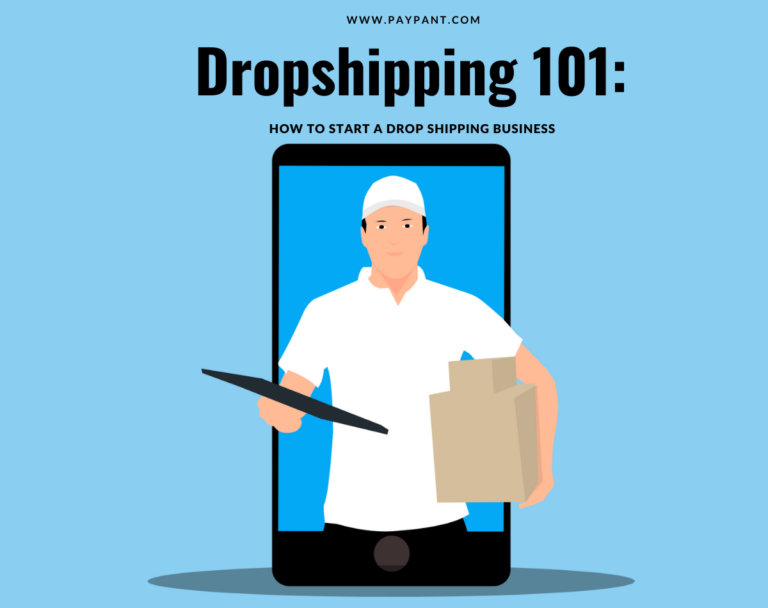Last updated Jun. 19, 2024 by Peter Jakes
Budgeting Tips for Beginners: How to Start a Budget That Works
Budgeting is an essential aspect of financial management that empowers individuals to take control of their finances, make informed spending decisions, and achieve their financial goals. However, for beginners, creating a budget can seem intimidating and complex. The good news is that budgeting doesn’t have to be complicated. By breaking down the process into manageable steps and using practical tips, anyone can create a budget that works for them. In this article, we’ll explore comprehensive budgeting tips for beginners and guide you through the steps to start a budget that works.
Understanding the Importance of Budgeting
Before diving into the step-by-step process of creating a budget, it’s essential to understand why budgeting matters. Here are some key reasons why budgeting is important:
-
Financial Control: Budgeting gives you control over your finances by helping you track your income and expenses. It prevents overspending and ensures you live within your means.
-
Goal Achievement: Whether you want to save for a vacation, pay off debt, or build an emergency fund, a budget helps you allocate money toward your financial goals.
-
Reduced Financial Stress: Knowing where your money is going and having a plan reduces financial stress and anxiety. It provides peace of mind and financial stability.
-
Improved Spending Habits: Budgeting encourages mindful spending. It helps you identify areas where you can cut back and make more intentional spending decisions.
- Debt Management: A budget helps you manage and pay off debt systematically. It allocates funds for debt repayment, ensuring you don’t fall behind on payments.
Step-by-Step Guide to Creating a Budget
-
Determine Your Financial Goals
Start by identifying your short-term and long-term financial goals. These could include building an emergency fund, saving for a down payment on a house, paying off credit card debt, or planning for retirement. Clearly defined goals will give you direction and motivation to stick to your budget.
-
Assess Your Income
Calculate your total monthly income, including your salary, freelance earnings, rental income, and any other sources of income. Use your net income (after taxes) instead of gross income to get an accurate picture of the money available for budgeting.
-
Track Your Expenses
To create an effective budget, you need to know where your money is going. For a month, track all your expenses, including fixed expenses (rent, utilities, insurance) and variable expenses (groceries, dining out, entertainment). Use tools like budgeting apps, spreadsheets, or a simple notebook to record every expense.
-
Categorize Your Expenses
Once you have tracked your expenses, categorize them into groups such as housing, transportation, groceries, utilities, entertainment, and savings. This helps you see where the bulk of your money is being spent and identify areas where you can cut back.
-
Set a Budget for Each Category
Based on your tracked expenses, set a realistic budget for each category. Allocate a portion of your income to each category, keeping in mind your financial goals. Ensure that your total budgeted expenses do not exceed your total income. Prioritize essential expenses and goals before allocating money to discretionary spending.
-
Implement the 50/30/20 Rule
A popular budgeting rule is the 50/30/20 rule, which breaks down your budget into three categories:
- 50% for Needs: Allocate 50% of your income to essential expenses such as housing, utilities, groceries, transportation, and insurance.
- 30% for Wants: Allocate 30% of your income to discretionary spending such as dining out, entertainment, hobbies, and leisure activities.
- 20% for Savings and Debt Repayment: Allocate 20% of your income to savings, investments, and debt repayment.
Adjust these percentages based on your personal financial situation and goals.
-
Create an Emergency Fund
An emergency fund is a critical component of a healthy budget. Aim to save at least three to six months’ worth of living expenses in a separate savings account. This fund will act as a financial safety net in case of unexpected expenses such as medical emergencies, car repairs, or job loss.
-
Automate Your Savings
To ensure you consistently save money, automate your savings. Set up automatic transfers from your checking account to your savings account on payday. Automating your savings makes it easier to stick to your savings goals without relying on willpower alone.
-
Review and Adjust Your Budget Regularly
Your financial situation and priorities may change over time, so it’s essential to review and adjust your budget regularly. At the end of each month, compare your actual spending to your budgeted amounts. Identify any discrepancies and make necessary adjustments to your budget for the following month.
-
Use Budgeting Tools and Apps
Leverage technology to make budgeting easier and more efficient. There are numerous budgeting tools and apps available, such as Mint, YNAB (You Need a Budget), and EveryDollar. These tools help you track expenses, categorize spending, set savings goals, and monitor your progress.
-
Practice Self-Discipline
Sticking to a budget requires self-discipline and commitment. Avoid impulse purchases and unnecessary spending. If you’re tempted to make an unplanned purchase, wait 24 hours before deciding. This cooling-off period helps you make more rational spending decisions.
-
Seek Support and Accountability
Share your budgeting goals with a trusted friend or family member who can provide support and accountability. Discussing your financial progress and challenges with someone you trust can keep you motivated and on track.
Common Budgeting Challenges and Solutions
1. Irregular Income
Challenge: Irregular income can make budgeting more challenging, especially for freelancers and self-employed individuals.
Solution: Base your budget on your average monthly income. During high-income months, set aside extra funds to cover expenses during low-income months. Prioritize building an emergency fund to smooth out fluctuations in income.
2. Unexpected Expenses
Challenge: Unexpected expenses can derail your budget.
Solution: Include a buffer in your budget for unexpected expenses. Contribute regularly to your emergency fund to cover unforeseen costs without impacting your monthly budget.
3. Overspending on Discretionary Items
Challenge: It can be tempting to overspend on non-essential items like dining out or entertainment.
Solution: Set a specific budget for discretionary spending and stick to it. Track your spending in these categories closely to avoid exceeding your budget. Consider using cash or a separate debit card for discretionary expenses to limit spending.
4. Difficulty Sticking to the Budget
Challenge: Sticking to a budget can be challenging, especially if you’re not used to tracking your expenses.
Solution: Start with a simple and flexible budget. Focus on building the habit of tracking your spending and making incremental improvements over time. Celebrate small wins and progress to stay motivated.
FAQs about Budgeting for Beginners
Q1: How do I start budgeting if I have no savings?
A: If you have no savings, start by creating a basic budget that covers your essential expenses. Begin by setting aside a small amount each month for savings, even if it’s just $10. Gradually increase your savings contributions as you adjust to your budget.
Q2: How can I save money on a tight budget?
A: To save money on a tight budget, focus on cutting non-essential expenses, such as dining out, subscription services, and impulse purchases. Look for ways to reduce fixed expenses, such as negotiating lower bills or shopping for better deals. Prioritize building an emergency fund and contributing to savings regularly, even if it’s a small amount.
Q3: How do I handle variable expenses in my budget?
A: For variable expenses, estimate an average amount based on past spending. Set aside a specific budget for each variable category, such as groceries or entertainment. Track your spending closely and adjust as needed. Consider using cash envelopes or a separate account for variable expenses to manage spending.
Q4: What should I do if I go over budget?
A: If you go over budget, review your spending to identify the cause. Adjust your budget for the following month to account for any overspending. Look for areas where you can cut back and reallocate funds to cover the overspent category. Use this as a learning experience to improve your budgeting habits.
Q5: How can I stay motivated to stick to my budget?
A: To stay motivated, set specific and achievable financial goals. Celebrate your progress and milestones along the way. Seek support from friends, family, or online budgeting communities. Regularly review your budget and track your progress to see the positive impact of your efforts.
Q6: Is it okay to adjust my budget frequently?
A: Yes, it’s essential to review and adjust your budget regularly. Your financial situation, needs, and goals may change over time. Adjusting your budget ensures it remains relevant and effective in helping you achieve your financial objectives.
Q7: What if my budget isn’t working?
A: If your budget isn’t working, reassess your income, expenses, and financial goals. Identify any unrealistic expectations or categories where you may need to cut back further. Seek advice from financial experts or consider using a budgeting tool or app to help streamline the process.
Q8: How do I prioritize debt repayment in my budget?
A: Prioritize high-interest debt repayment by allocating a portion of your budget specifically for debt payments. Consider using the debt snowball or avalanche method. Allocate any extra funds towards paying off debt faster while ensuring you meet your essential expenses and savings goals.
Q9: How can I involve my family in budgeting?
A: Involve your family in the budgeting process by discussing financial goals and priorities together. Assign specific budgeting tasks and responsibilities to each family member. Encourage open communication about spending and saving habits. Create a family budget and track progress together.
Conclusion
Budgeting is a powerful tool that can transform your financial life and help you achieve your goals. By following the steps outlined in this article and incorporating practical budgeting tips, you’ll be well on your way to creating a budget that works for you. Remember that budgeting is a continuous process that requires regular review, adjustment, and commitment. Stay focused on your financial goals, practice self-discipline, and seek support when needed. With persistence and dedication, you can take control of your finances and build a secure financial future.







